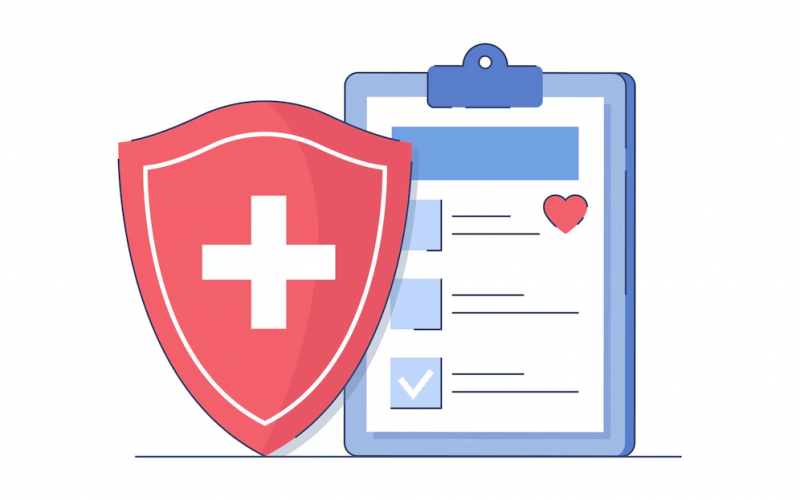What are HIPAA and PHI, and Why are They Important to Protect
HIPAA (Health Insurance Portability and Accountability Act of 1996) is a federal law that protects individuals’ confidential health information. It requires all healthcare providers and business associates handling protected health information (PHI) to secure it properly. PHI includes any personally identifiable information about a patient’s medical history, treatment, diagnosis, and other related information
HIPAA is required for protection to keep personal health information confidential and secure. The HIPAA Privacy Rule specifies how organisations must handle PHI, including who has access to it and when. The HIPAA Security Rule applies to electronic PHI and requires organisations to implement physical, technical, and administrative safeguards to protect ePHI.
The importance of HIPAA and PHI protection lies in maintaining individuals’ trust in the security and confidentiality of their healthcare information. Without these protections, individuals may be reluctant to share their health information with healthcare providers, leading to misdiagnoses and other medical errors. Furthermore, HIPAA helps protect public health by providing a secure way to store and access sensitive medical information. This information can help us understand disease spread better and identify potential treatments in our research.
To know more, you can read some blogs. For example, it’s better to read some blogs from Lead Academy because, as Lead Academy is explaining in its blog post very well.
How do You Protect HIPAA and PHI Data?
To protect HIPAA and Protected Health Information (PHI) data, organisations must implement a comprehensive security plan that includes safeguards to cover all of their electronic PHI (e-PHI). This plan should consist of technical measures, such as encryption, firewalls, and access control systems, and administrative measures, like staff training, policies and procedures, and breach notification.
Technical measures should be in place to ensure the confidentiality, integrity, and availability of e-PHI while it is being stored or transmitted. Examples include encryption, two-factor authentication, firewalls, access control systems (roles-based authentication), and intrusion detection systems.
Organisations must also have administrative measures to ensure that their staff and other authorised users can use e-PHI securely. Examples of such actions include employee training, policies and procedures regarding access and use of e-PHI, data security incidents and breach notification protocols.
Organisations should also review their existing HIPAA policies and procedures to ensure they are up-to-date and compliant with the law. In addition, they should regularly assess potential risks and vulnerabilities, evaluate their security plan and make any needed changes, and monitor access to e-PHI.
Organisations can ensure that their sensitive data is protected by implementing a comprehensive security plan and taking the necessary measures to safeguard HIPAA and PHI data.
What are the Consequences of not Protecting HIPAA and PHI Data?
The consequences of not protecting Protected Health Information (PHI) and Health Insurance Portability and Accountability Act (HIPAA) data can be severe. For example, a HIPAA violation could result in significant fines or criminal charges against the responsible party.
Depending on the severity of the breach, the penalties may include the following:
- Civil monetary penalties of up to $50,000 per violation, with an annual maximum of $1.5 million.
- Jail time of up to 10 years.
These penalties deter organisations that do not take the necessary precautions to secure PHI and HIPAA data. Organisations must take the steps required to protect this sensitive data, as the consequences of failing can be costly.
In addition to monetary and criminal penalties, organisations may also face damage to their reputation if a breach occurs. This could result in lost customers, decreased income, and legal action from those affected by the breach.
How can You Ensure That Your Business is HIPAA Compliant?
Ensuring that your business is HIPAA-obedient can be a daunting task, however, with the proper steps and knowledge.
The first step in ensuring that your business is HIPAA compliant is to be aware of the regulations and requirements set forth by HIPAA. It includes familiarising yourself with the Privacy Rule, the Security Rule, the Breach Notification Rule, and other applicable federal regulations. Once you know these rules, you should establish policies and procedures. These regulations protect your patients’ confidential health information and educate yourself and your staff on HIPAA regulations and how to handle patient data properly.
Training should be provided to all employees who come into contact with any personal health information. Additionally, it would be best if you established protocols for securely handling patient data, such as encryption when transferring files or using secure servers for storage next step in ensuring that your business is HIPAA compliant is to create a risk assessment plan. It includes evaluating potential risks, such as unauthorised access or disclosure of information, and identifying ways to mitigate those risks. You should also review the security measures already in place at your business and determine if they are sufficient to meet HIPAA requirements.
What are the Benefits of Being HIPAA-Compliant?
Being HIPAA compliant has numerous benefits for healthcare providers, organisations, and their patients. The primary use of being HIPAA compliant is that it provides a secure environment for transmitting and storing sensitive patient data.
By adhering to the standards and regulations set out by HIPAA, healthcare providers can ensure that patient data is protected from unauthorised access or use. It also reduces the risk of costly fines and penalties for non-compliance with HIPAA regulations.
Furthermore, HIPAA compliance can help healthcare providers build trust with their patients by demonstrating that they take their data security seriously. Finally, HIPAA compliance promotes good data management practices, which can help improve healthcare organisations’ efficiency.
Conclusion
There’s a lot to know about HIPAA and PHI. Understanding the basics of each can help you ensure that you comply with the law and protect your patients’ information. Thanks for reading!

